Posted on 12/5/2023

As winter descends and temperatures drop, ensuring your vehicle is winter-ready becomes paramount for a safe and smooth driving experience. At B & L Automotive, we understand the challenges that winter conditions can pose, so here's a comprehensive guide on how to winterize your vehicle for the chilly months ahead. 1. Check Your Antifreeze Levels Antifreeze, or coolant, is essential for preventing your engine from freezing in cold temperatures. Ensure your antifreeze levels are sufficient and that the mixture is appropriate for winter conditions. 2. Inspect Your Battery Cold weather can take a toll on your vehicle's battery. Check for corrosion on the terminals, ensure secure connections, and have your bat ... read more
Posted on 11/28/2023
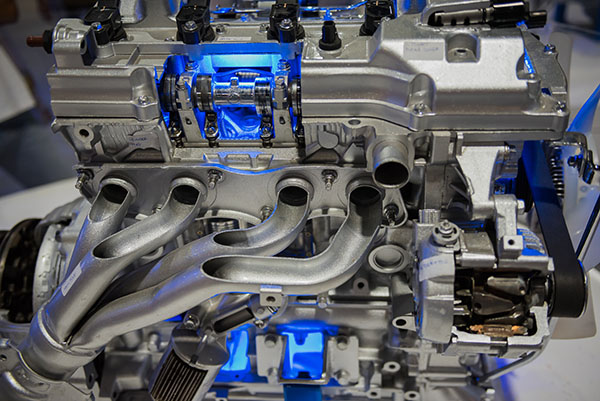
As a responsible car owner, it is widely recommended to prioritize regular maintenance of your vehicle. Performing routine maintenance tasks such as oil changes and spark plug replacements not only ensures optimal vehicle performance but also a multitude of benefits as you will discover below. Regular Oil Changes The fluid to rule them all, oil plays a pivotal role in ensuring smooth and efficient performance. Oil changes, in accordance with manufacturer recommendations, are crucial in preventing the accumulation of harmful sludge and contaminants that can compromise engine efficiency and lead to costly repairs. By adhering to a consistent oil change schedule, you safeguard the heart of your vehicle and prolong its lifespan. Air Filter Replacement The air filter serves as the guardian of your engine, shielding it fr ... read more
Posted on 10/27/2023

One often-overlooked hero under your hood is the water pump, tirelessly circulating coolant to keep your engine's temperature in check. But it's time to change that - let's dive in and decode the secrets your car is trying to tell you when the water pump is having issues operating. The Water Pump Explained Think of the water pump as your engine's personal temperature regulator. It pumps coolant through the engine, radiator, and heater core, maintaining the optimal temperature for smooth operation. Usually, it is powered by a belt or chain directly connected to the engine. This allows it to operate at the needed speed in correspondence to the engine's load. The Warning SignalsCoolant Leak If you spot a puddle of coolant under your parked car, it's a ... read more
Posted on 9/29/2023

Summer break is coming to an end, and it's that time of year again when students across the country gear up to head back to school. While backpacks and textbooks are essential, let's not forget about the ride that will get you there in style. If you're in the market for a cool set of wheels, we've got three perfect picks - fuel-efficient, small, and sporty! 1. 2022 Mazda MX-5: The Sports Car Sophisticate For those looking to make a statement when they pull into the parking lot, the 2022 Mazda MX-5 is the ultimate choice. This sleek and stylish roadster not only turns heads but also delivers an exhilarating driving experience. With its compact size and nimble handling, you'll effortlessly weave through traffic and find parking spots that others can only dream of. Short Spec List:Engine: 2.0-liter 4-cylinder Horsepower: 181 hp Transmission: 6-speed manual or automat ... read more
Posted on 8/30/2023
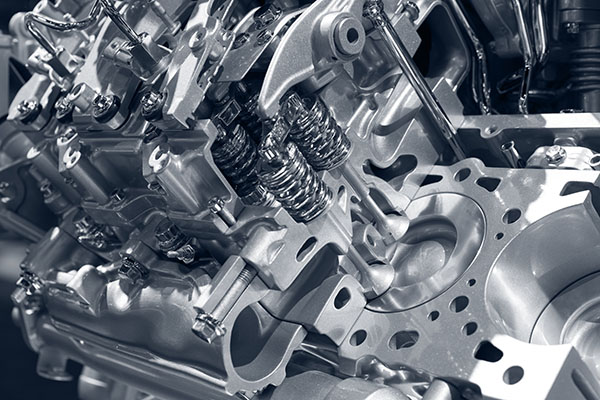
When it comes to the world of internal combustion engines, two prominent players take the spotlight: diesel and gasoline engines. These powerhouses are responsible for propelling vehicles, machinery, and generators, enabling our modern way of life. Despite their similar basic functionality, diesel, and gasoline engines require distinct approaches to maintenance due to their unique characteristics and operational demands. If you want to learn about what it takes to maintain both and how they differ from each other, continue reading! Fuel Composition and Combustion The first and perhaps most apparent difference between diesel and gasoline engines lies in their fuel composition and combustion process. Gasoline engines rely on spark ignition, where a spark plug ignites a mixture of gasoline and air, resulting in controlled combustion. On the other hand, di ... read more
Posted on 7/28/2023
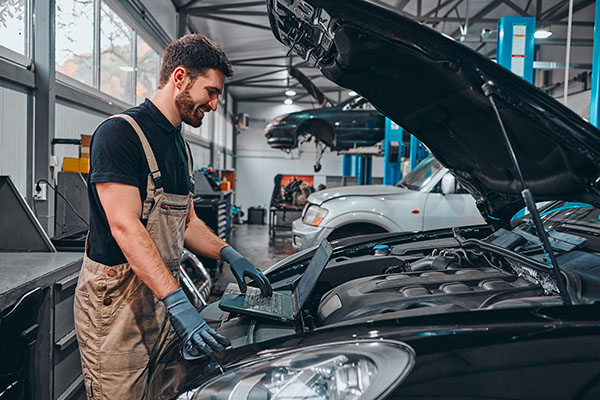
Rev up those engines and put on your adventure hats because a road trip is just around the corner! But hold on tight because nobody wants unexpected car troubles to rain on their parade. Before you hit the open road, it's time to show your faithful vehicle some love and attention. In this exciting blog, we'll dive into seven warning signs that scream for immediate attention. By taking care of these issues beforehand, you can ensure your road trip is a wild and worry-free adventure, leaving you with unforgettable memories and a car that's up for anything! Strange Noises Unusual noises coming from your vehicle are never a good sign. Whether it's squealing brakes, grinding sounds, clunking from the suspension, or a mysterious rattling, it's important to have them checked by a professional. These noises could be indicative of worn-out components, loose parts, or potential system failures, which require immediate attention to avoid further ... read more
Posted on 6/29/2023
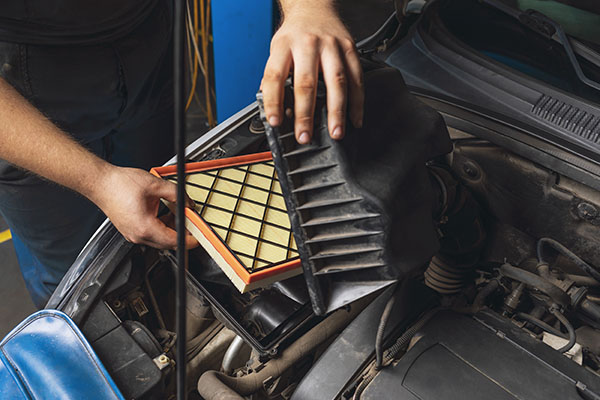
In the intricate world of automotive engineering, there is one component that quietly performs a crucial task - the air filter. While it's not as talked about as other parts, it does quite an important job. What is it, you might ask? Well, continue reading to find out! What Does The Air Filter Do? The primary function of the air filter is to clean the air entering the engine. As your vehicle moves, it draws in a mix of air and contaminants such as dust, dirt, pollen, and debris. The air filter acts as a protector, preventing these particles from entering the engine's combustion chamber. By capturing and trapping harmful particles, the air filter ensures that only clean air reaches the engine, preserving its longevity and efficiency. Why is Clean Air So Important A clean and efficient air supply is essential for optimal engine performance. The air filter plays a crucial role in safeguarding the engine from potential damage caused by dirt and ... read more
Posted on 5/31/2023
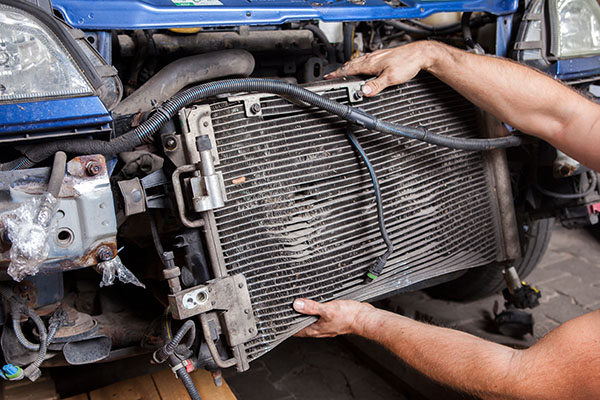
Your car's cooling system plays a vital role in maintaining a safe operating temperature for your engine. When this system starts to malfunction, problems like overheating and part welding due to friction start to occur. Here are five signs that your cooling system may have problems so you know when to stop driving and go to a repair shop: 1. Engine Overheating The most obvious sign of a problem with your cooling system is engine overheating. If your temperature gauge reads higher than normal or you see steam coming from under the hood, it's a clear sign that your engine is running too hot. This could be due to a coolant leak or a malfunctioning component in your cooling system - make sure to have it checked by a mechanic. 2. Low Coolant Level If your coolant level is low, it's a clear indication that there's a problem with your cooling system. Low coolant levels could be caused by a leak, which can lead to engine overheating and po ... read more
Posted on 4/29/2023
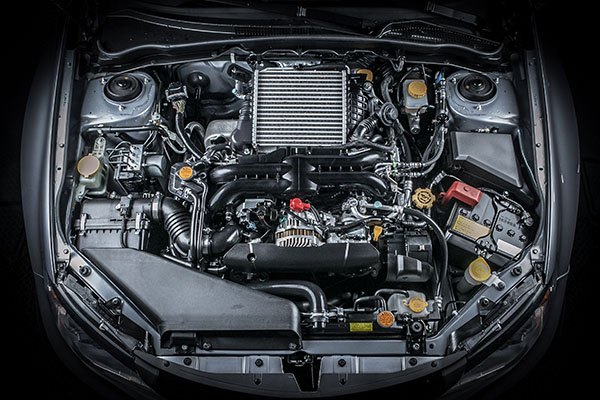
Everyone knows that your vehicle has fluids running through it. They keep it working smoothly and keep it at a certain temperature. But what kinds of fluids are there? If you continue reading, you will find exactly that. We have put together a list of the main fluids your vehicle has and what they do exactly. Engine Oil The first, and probably the most well-known item on the list, is engine oil. It is vital for the work of your engine. That is because it lubricates and cools the engine because of the special way engine blocks are made. They have a lot of holes and crevasses, which are filled by the oil. Transmission Oil Transmission oil is very similar to engine oil. The main difference you see at first is the color (most of the time, it is red). It should be changed at certain intervals, as provided by the manufacturer in the owner's manual. Brake Fluid Most of the time, the fluid that is in the brake lines is forgotten or s ... read more
Posted on 3/30/2023
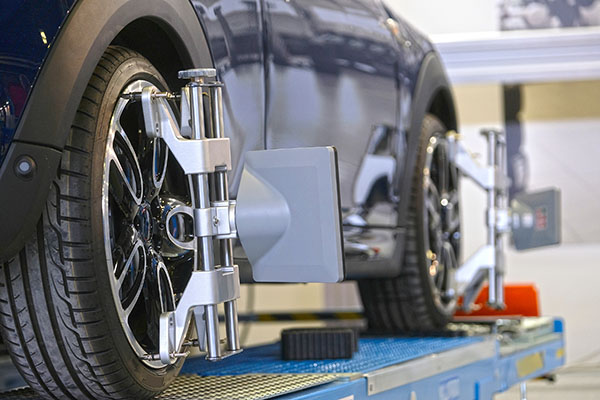
Whenever you change tires or buy a new car, wheel alignment is very important. It makes sure that your wheels aren't wobbling or tilted to one side because this can result in problems. Sometimes they are almost aligned, but after some time they go out of alignment. That's why you should make sure to have it done professionally and often. There are other symptoms that might not connect to tire alignment at first, but don't worry because we are here to clear things up. Here are five signs that point to problems with your wheel alignment: 1. Shaking While Breaking Shaking only when braking can also be a sign of bad wheel alignment. This occurs because of the contact the rotors and brake pads make - the rotors are mounted to the wheels. This can cause more damage to the surrounding parts and systems over time, so make sure to check it out at a shop. 2. Vibrations While Driving Experiencing shaking or vibration while driving can be connected ... read more